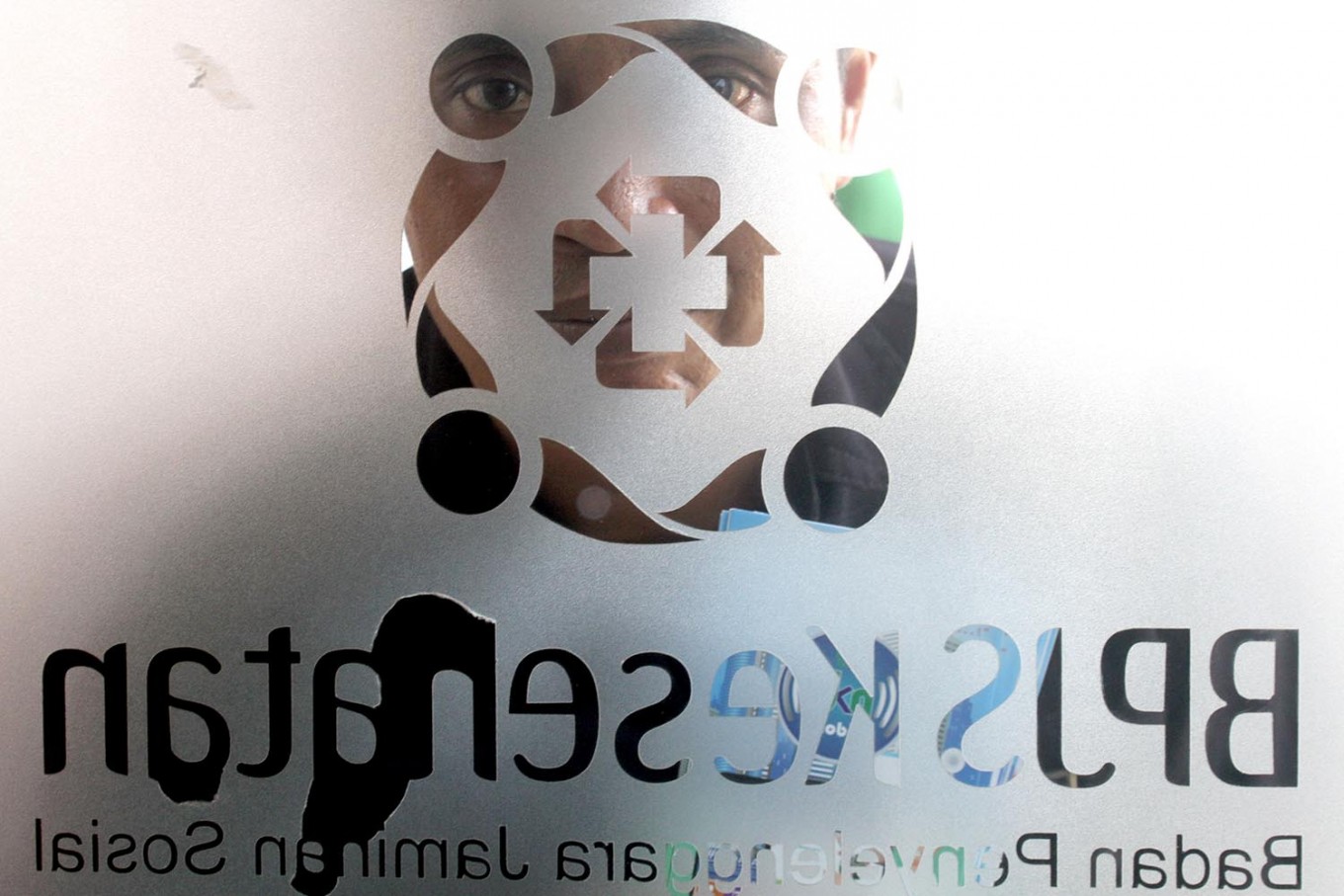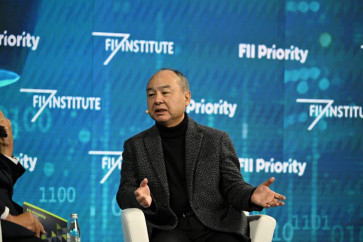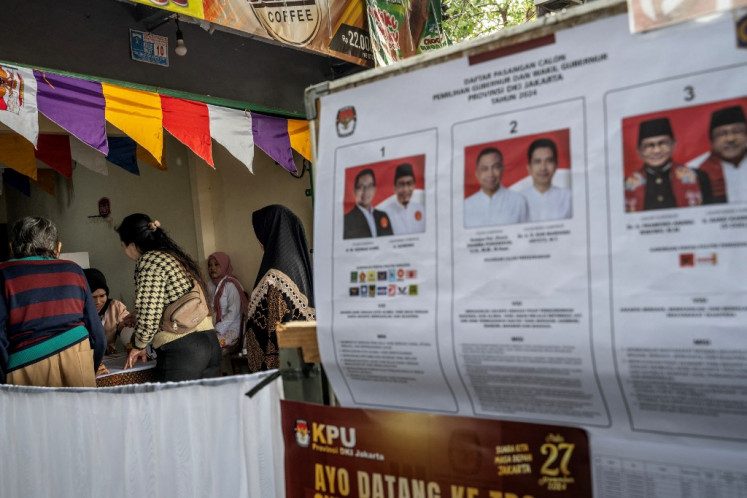Popular Reads
Top Results
Can't find what you're looking for?
View all search resultsPopular Reads
Top Results
Can't find what you're looking for?
View all search resultsGovernment steps in to bail out BPJS
BPJS Kesehatan’s deficit is estimated to hit Rp 10.99 trillion this year.
Change text size
Gift Premium Articles
to Anyone
T
he government has allocated Rp 4.99 trillion (US$335.02 million) to bail out the Healthcare and Social Security Agency (BPJS Kesehatan), a far cry from the estimated Rp 10.99 trillion deficit the state insurer is facing this year.
Deputy Finance Minister Mardiasmo said on Monday that the ministry had issued a regulation stating that it would inject funds set aside in the 2018 state budget into the state health insurer.
“God willing, the money will be disbursed by the end of this week or the beginning of next week,” he said in the joint meeting with the House Commission IX in Jakarta on Monday.
To further assist BPJS Kesehatan, the ministry has devised a “policy mix” to be implemented over several years that will enable the agency to increase its revenue from more varied sources, including tobacco excise. The ministry has also issued a regulation that imposes a ceiling on BPJS Kesehatan’s operational costs. The regulations are expected to increase revenue by Rp 2.69 trillion to Rp 3.07 trillion.
The policy mix is expected to take effect in October after President Joko “Jokowi” Widodo signed the revised presidential regulation on national health insurance.
However, the assistance and additional funds are inadequate to cover the deficit BPJS Kesehatan faces this year.
According to its annual work plan and budget, the state health insurer estimated this year’s deficit will hit Rp 16.58 trillion. The amount is based on this year’s deficit of Rp 12.1 trillion and the carryover deficit from 2017 of Rp 4.4 trillion.
Based on the Development Finance Comptroller’s recent review, BPJS Kesehatan’s deficit is estimated to hit Rp 10.99 trillion this year.
BPJS Kesehatan president director Fachmi Idris said one of the main issues behind the recurring deficit was the underpriced premiums.
He said the premium paid by the government for low-income participants, referred to as contribution assistance recipients, was Rp 23,000 each. The amount is lower than the normal premium of Rp 36,000.
Meanwhile, independent workers pay a Rp 25,500 premium for third-class facilities and Rp 51,000 for second-class facilities every month. These amounts are below the actuarial valuation of Rp 53,000 for third-class and Rp 63,000 for second-class.
“As long as the government insists on maintaining the pricing structure, [BPJS Kesehatan] will always suffer from a deficit,” he said.
The problem will only accumulate as the number of inactive participants increases. Sigit Priohutomo, the chairman of the National Social Security Council, an independent body that oversees state insurers, said as of June, the number of inactive BPJS Kesehatan participants was 17.37 million out of 199 million.
“If these members paid their premiums, BPJS Kesehatan would at least have an additional Rp 800 billion per month,” he said.
BPJS Kesehatan’s deficit not only affects the state health insurer, but also healthcare facilities and pharmaceutical distributors all over the country.
Earlier this month, the management of private hospital Karya Husada in Karawang, West Java, issued a letter to its specialists and dentists on the delayed disbursement of their honorarium because of a late payment from BPJS Kesehatan.
The letter went viral after hospital director Pundi Ferianto posted a screenshot of it on his Facebook page, saying that the insurer had unpaid claims of Rp 6.6 billion for September.
According to kompas.com, the insurer’s representatives talked to officials at its Karawang office, where they said they were committed to covering the claims.
The Indonesian Pharmaceutical Association (GP Farmasi) also said late payments were affecting pharmaceutical distributors.
In a letter sent by GP Farmasi to the Health Ministry in August, the association said several hospitals had yet to receive Rp 3.5 trillion in insurance claims, which was supposed to be paid in July.
“We can’t receive our payment if hospitals haven’t received their money from BPJS Kesehatan,” GP Farmasi executive director Dorodjatun Sanusi told The Jakarta Post recently.
The Indonesia Hospitals Association’s Jakarta chapter chairman Koesmedi said hospitals were not able to pay the mounting claims of pharmaceutical distributors, including claims incurred from the provision of medication or medical devices, because their deposited funds were used to pay their doctors and healthcare professionals. (ris)











